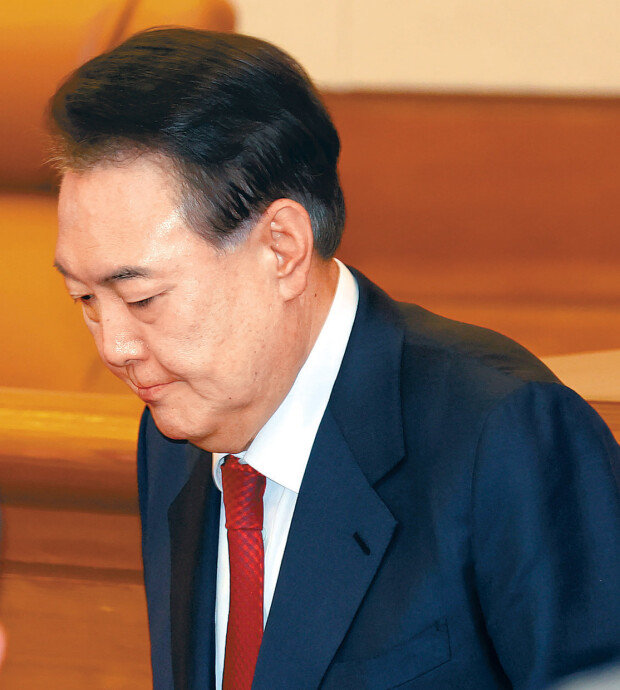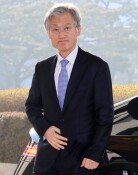Yoon removed from office by unanimous court decision
Yoon removed from office by unanimous court decision
Posted April. 05, 2025 07:13,
Updated April. 05, 2025 07:13

President Yoon Suk Yeol was removed from office on April 4 following a unanimous ruling by South Korea’s Constitutional Court. He becomes the second president in the country’s constitutional history to be impeached and ousted, following former President Park Geun-hye. Yoon’s dismissal comes two years and 11 months after his inauguration on May 10, 2022, and 111 days after the National Assembly passed the impeachment motion. A snap presidential election is expected to be held within 60 days in accordance with the Constitution.
Acting Chief Justice Moon Hyung-bae, presiding over the court’s grand chamber in Jongno, central Seoul, stated, “The respondent’s unconstitutional and unlawful actions constitute a betrayal of public trust and cannot be tolerated from the standpoint of safeguarding the Constitution.” He declared, “Therefore, with the unanimous agreement of all eight justices, we hereby remove President Yoon Suk Yeol from office.” The 8–0 decision mirrors the ruling in Park Geun-hye’s impeachment case. Yoon was officially dismissed as of 11:22 a.m., when the court’s order was read aloud.
In a 114-page ruling, the court wrote, "the respondent violated the Constitution and laws by declaring martial law, thereby reviving the dark legacy of abusing emergency powers. This plunged the nation into shock and disrupted society, the economy, politics, and diplomacy alike,” adding that his actions “inflicted immeasurable harm on democracy.”
The court found that Yoon’s declaration of emergency martial law on December 3 failed to meet legal requirements and did not follow due procedures. It emphasized, “Even if the current political situation was deemed a serious threat to the national interest, the president should have responded through democratic means as prescribed by the Constitution and law.” The ruling noted that he failed to unify the broader social community beyond his political base as the president for all citizens.
The court upheld all five grounds for impeachment: (1) the declaration of martial law, (2) ordering military and police deployment to the National Assembly, (3) issuing emergency decrees, (4) raiding the National Election Commission, and (5) attempting to track the whereabouts of judges and politicians. Notably, the court recognized as factual the allegations that Yoon himself had repeatedly denied throughout the impeachment proceedings—namely, that he ordered the removal of lawmakers and sought to locate political and judicial figures.
Regarding the withdrawal of insurrection charges under criminal law by the National Assembly, the court stated that “altering or withdrawing specific legal provisions does not constitute a change to the grounds for impeachment as long as the factual basis remains unchanged.” It reaffirmed that presidential actions such as declaring martial law are subject to judicial review, dismissing the former president’s claim that his emergency powers were beyond the court’s jurisdiction.
In his farewell remarks, Yoon said, “It has been the greatest honor to serve the Republic of Korea,” adding, “I am deeply sorry and regretful for failing to meet expectations.” Lee Jae-myung, leader of the opposition Democratic Party of Korea, stated, “The great people have reclaimed the great democratic republic of Korea,” and emphasized the need for political leaders, including himself, to reflect and take responsibility. Kwon Young-se, interim leader of the ruling People Power Party, commented, “Though regrettable, we solemnly accept the court’s decision. Respecting this ruling is the only way to uphold democracy and the rule of law.”
Won-Mo Yu onemore@donga.com





![[천광암 칼럼]장동혁은 대체 왜 이럴까](https://dimg.donga.com/c/138/175/90/1/wps/NEWS/IMAGE/2026/02/22/133399127.1.jpg)

